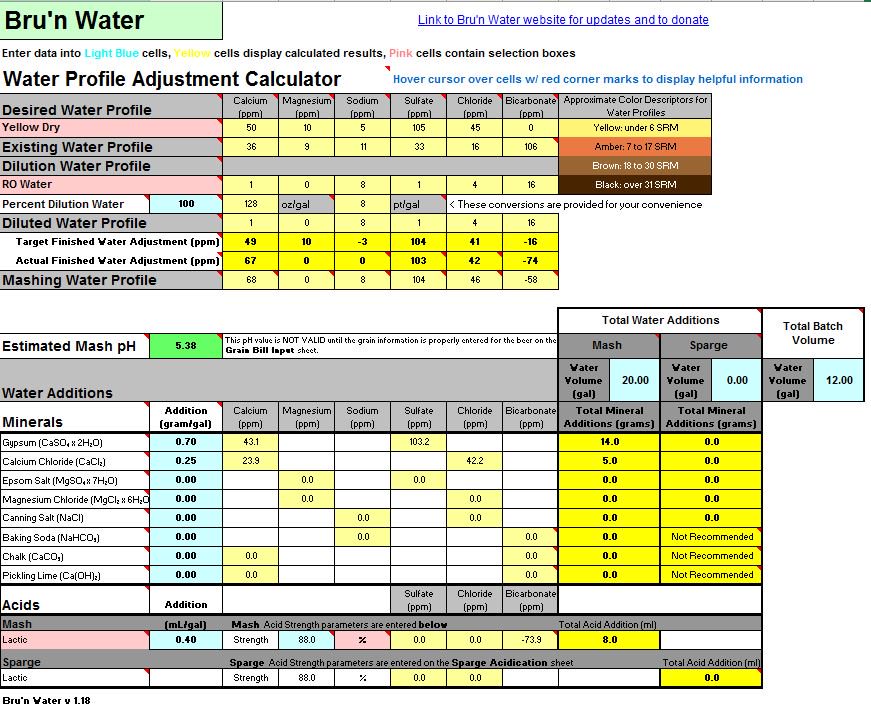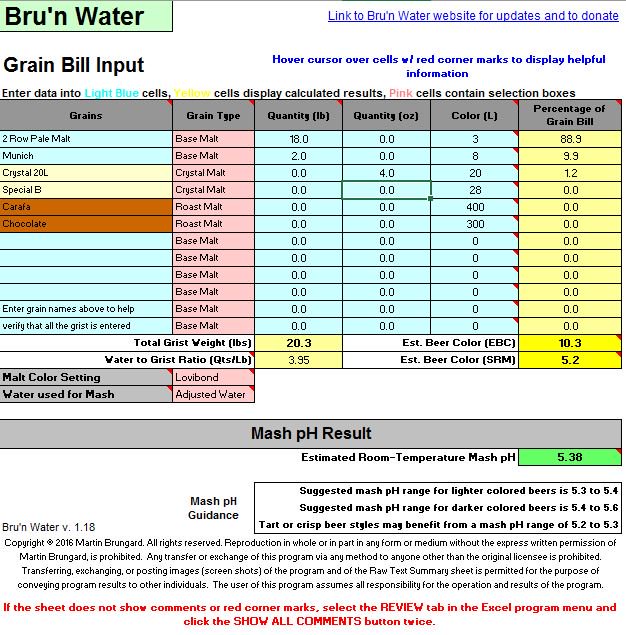I have a new RO setup and I brew with a 3 vessel, electric HERMS setup. I have a 20 gal HLT in this configuration.
I fill my HLT full each time, no matter the resulting batch size (6-12 gals) being brewed. This has to do with keeping the coils covered in water. Using the Bru'n Water spreadsheet, this would equate to putting 20 gals in the 'mash' column no matter what. I would also leave the sparge column at 0.
I am thinking about where and when to add the additions. My current thinking is to pre-treat the HLT before it heats up with all the additions including lactic acid.
Questions:


I fill my HLT full each time, no matter the resulting batch size (6-12 gals) being brewed. This has to do with keeping the coils covered in water. Using the Bru'n Water spreadsheet, this would equate to putting 20 gals in the 'mash' column no matter what. I would also leave the sparge column at 0.
I am thinking about where and when to add the additions. My current thinking is to pre-treat the HLT before it heats up with all the additions including lactic acid.
Questions:
- Does the 'Total Batch Volume' column have any bearing on the calculations (e.g. for boil off concentration)?
- Is adding the required acid and brewing salts to the HLT before heating it up the right idea? Any issues with this approach?
- I am trying to reconcile AJ's advice in the primer (and foreword to "Water") about adding 1 tsp calcium chloride per 5 gals. If I say that 1 tsp ~= 3.1 grams, I get around .6 g/gal. That kinda/sorta is almost the 'Yellow Full' profile. Is there a different profile that approximate's his advice? This is more curiosity than anything.



